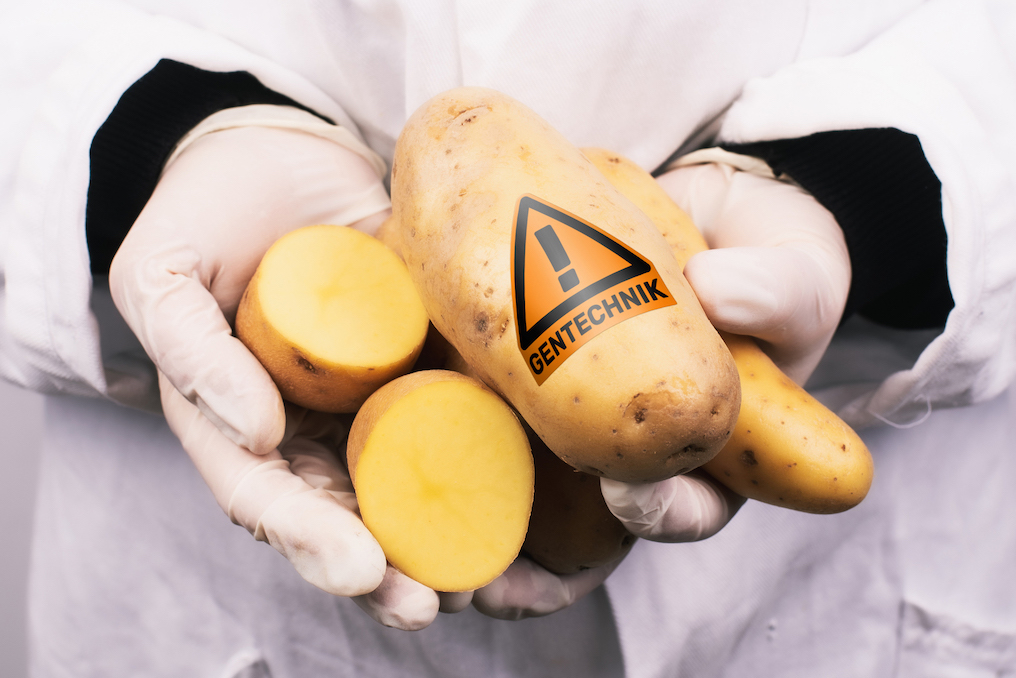
Spar, Rewe, Hofer and Lidl Austria demand transparency and freedom of choice for customers
Food produced using new genetic engineering methods, such as the so-called “gene scissors” gene-editing tool CRISPR/Cas, is still subject to the strict rules of EU genetic engineering law for agriculture and food. But the EU Commission has initiated a process towards deregulation for some or all new genetic engineering techniques.
Now leading representatives of the Austrian food retail trade are expressing concerns that deregulation of EU genetic engineering law would mean the unacceptable risk that retailers could unintentionally and unknowingly be selling untested and unlabelled foods made with new genetic engineering techniques.
Markus Kaser, member of the management board of SPAR Austria, said, “Austria's exemplary agriculture has been producing high quality food without genetic engineering for generations. This is a quality feature of local food that we are envied for around the world. That's why we still don't need any genetically modified food, either in the current form or in a new form. Any use of these new methods in agriculture or food production must be subject to the same precautionary and transparency measures as previous methods of genetic engineering. Deregulation of genetic engineering legislation would definitely be the wrong approach. Austrian and European politics must set the regulatory course in such a way that the high Austrian food standards are protected. That means the precautionary principle, traceability, labelling and development of detection methods. As a founding member of ARGE Gentechnik-frei,* SPAR is committed to this.”
Marcel Haraszti, REWE Group board member, said, “It is important to us that customers can make a conscious purchasing decision. That is why we are committed to labelling genetically modified products. Even if we are open to new technologies, regulation and risk assessment are needed.”
Horst Leitner, CEO of Hofer, said, “The issue of freedom from genetic engineering is a major concern both for our customers and for us as a company. It is therefore particularly important to us to label products that are produced without genetic engineering with the appropriate logo. We signed the European Retailer Resolution back in 2021 and in it we clearly spoke out against the deregulation of new genetic engineering. We also support the current GLOBAL 2000 initiative.”
Alessandro Wolf, CEO of Lidl Austria, said, "We have been involved in ARGE Gentechnik-frei since 2010 because a transparent declaration is particularly valuable for Austrian food production! With their purchase, customers should be able to help decide in which direction agricultural production is developing and also be able to know what they are eating. That is why we stand behind the demand for reliable labelling of genetic engineering.”
Brigitte Reisenberger, spokeswoman for genetic engineering at GLOBAL 2000, said, "Freedom of choice, safety and transparency in food is important for consumers – the grocers agree on that. Therefore it must also be ensured in the future that the use of new genetic engineering in food will be identified."
The environmental protection organisation GLOBAL 2000 is supporting the Austrian federal government in lobbying the EU Commission for continuance of strict regulation and labelling of new genetic engineering in food. Austria has been a pioneer in GMO-free agriculture and food production since the referendum on genetic engineering 25 years ago. In no other EU member state is the proportion of GMO-free food and organic products as high as in Austria. For 83.1% of Austrian consumers, GMO-free is an important or very important aspect when shopping, according to a recent survey.
* ARGE Gentechnik-frei is an independent platform of member companies from the food trade, food production and animal feed production industries, as well as organisations and associations from the fields of environmental protection, consumer protection and farmer representatives.
Source: GLOBAL 2000
Image: GLOBAL 2000 / Christopher Glanzl